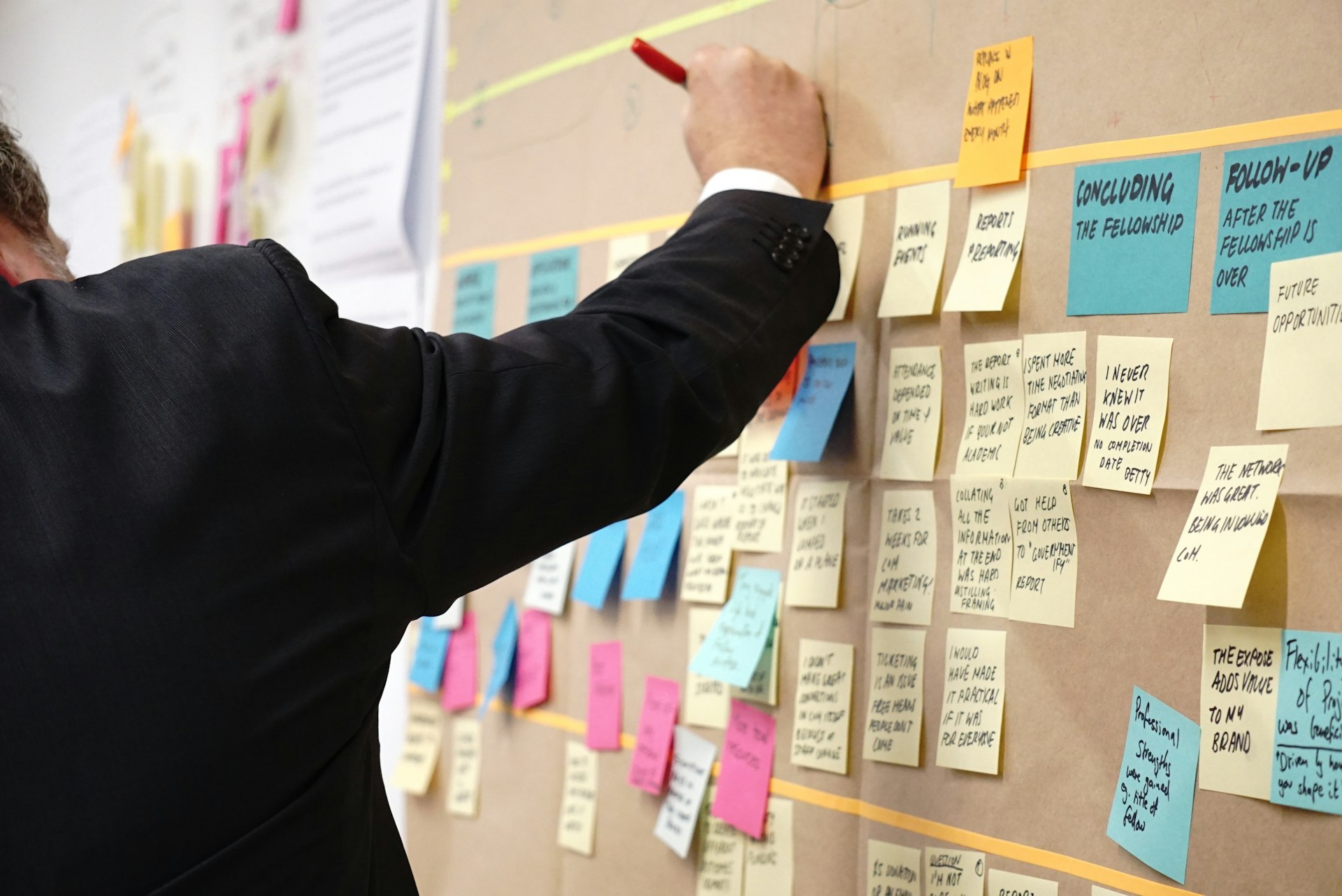Essential Soft Skills for Career Success in 2025: What You Need and How to Develop Them

Photo by Anne Nygård on Unsplash
Introduction: Why Soft Skills Matter More Than Ever in 2025
The workforce of 2025 is rapidly evolving, shaped by technological advances, hybrid work environments, and global competition. While technical expertise remains important, employers now prioritize soft skills as the foundation for productivity, adaptability, and long-term career success. These personal and interpersonal skills-such as communication, emotional intelligence, and problem-solving-enable professionals to collaborate effectively, respond to change, and lead with impact [3] . This article explores the essential soft skills for 2025, explains how to cultivate them, and provides actionable steps for career advancement.
Understanding Soft Skills: The New Career Differentiator
Soft skills refer to qualities that influence how you interact, resolve conflicts, and manage tasks in the workplace. Unlike hard skills-technical abilities like programming or financial modeling-soft skills are applicable across industries and roles. They include communication, adaptability, teamwork, leadership, and emotional intelligence [2] . In 2025, as job roles become more dynamic and collaborative, soft skills set you apart and are often the deciding factor in hiring and promotion decisions [3] .
Top Soft Skills for Career Success in 2025
Based on recent research and industry reports, the following soft skills are most critical for career advancement in 2025:
Critical Thinking and Problem Solving
Critical thinking enables professionals to analyze complex issues, spot trends, and provide actionable insights. For example, a data analyst who can interpret datasets and identify patterns delivers greater value than one who only processes information [1] . Employers value these abilities because they help teams navigate uncertainty and innovate solutions.
Implementation:
Practice analyzing information from multiple sources, challenge assumptions, and participate in brainstorming sessions. Seek feedback from mentors and peers to refine your reasoning skills.
Alternative Pathways:
Join professional groups or online forums focused on problem-solving, or enroll in workshops that emphasize analytical skills.
Communication Skills
Effective communication is essential for conveying ideas, negotiating, and building relationships. In a hybrid or remote environment, clear written and verbal communication prevents misunderstandings and boosts productivity [2] . For instance, a sales representative who delivers concise presentations to management can influence decision-making and foster trust.
Implementation:
Improve communication by practicing active listening, tailoring messages to audiences, and soliciting feedback. Join a public speaking group or take communication courses through reputable platforms.
Alternative Pathways:
Participate in team projects to practice real-time communication and conflict resolution.
Emotional Intelligence (EQ)
Emotional intelligence helps you understand and manage your own emotions and empathize with others. High EQ leaders motivate teams, resolve conflicts, and create positive work environments. For example, a manager who listens actively and responds empathetically can boost morale and productivity [1] .

Photo by Kelly Sikkema on Unsplash
Implementation:
Reflect on your emotional triggers, practice mindfulness, and seek mentorship. Use resources such as employee assistance programs or online EQ assessments to track progress.
Alternative Pathways:
Volunteer for leadership roles or participate in peer coaching programs to build empathy and resilience.
Adaptability and Flexibility
Rapid technological and market changes require adaptability . Professionals who embrace change and learn new skills can pivot to new roles and responsibilities. For example, digital marketers who adapt to new platforms reach wider audiences and stay competitive [1] . In industries such as insurance and public sector, flexibility and resilience are especially valued [4] .
Implementation:
Stay informed about industry trends, attend webinars, and participate in cross-functional projects. Embrace a growth mindset and view setbacks as learning opportunities.
Alternative Pathways:
Pursue certifications or training programs designed for skill updates and adaptability.
Collaboration and Teamwork
Success in 2025 depends on collaboration . Diverse teams that work well together combine strengths, solve problems efficiently, and deliver quality outcomes. For example, software development teams with strong collaboration launch projects faster and with fewer errors [1] .
Implementation:
Volunteer for team leadership roles, participate in group projects, and provide constructive feedback. Use collaboration tools and establish clear team goals.
Alternative Pathways:
Engage in community-based projects or professional organizations to expand teamwork experience.
Leadership and Social Influence
Leadership is not just about managing teams-it’s about inspiring others and driving change. Social influence, built over time through trust and reputation, is invaluable for career advancement [5] . Leaders who foster inclusive cultures and support development help organizations thrive.
Implementation:
Seek feedback, mentor others, and take part in leadership development programs. Focus on building authentic relationships and trust within your network.
Alternative Pathways:
Participate in volunteer organizations or industry panels to demonstrate leadership and influence.
Time Management
Efficient time management allows professionals to meet deadlines and balance multiple projects. Agile methodologies, like two-week sprints and daily stand-ups, help teams complete projects ahead of schedule [1] .
Implementation:
Use productivity tools, set realistic goals, and prioritize tasks. Review your progress weekly and adjust plans as needed.
Alternative Pathways:
Attend time management workshops or consult with professional coaches to improve personal efficacy.
How to Access Soft Skills Training and Development Opportunities
Developing soft skills is an ongoing process. Many organizations provide free or subsidized resources for skill-building. You can:
- Contact your Human Resources department to inquire about internal training programs or mentorship opportunities.
- Search for industry-recognized online courses on platforms such as LinkedIn Learning, Coursera, or edX. These platforms offer verified courses in communication, leadership, and problem-solving.
- Attend webinars, workshops, and conferences hosted by professional associations in your field.
- Seek local networking events or join professional organizations to practice collaboration and leadership.
- Request feedback from supervisors and peers to identify areas for growth.
If your employer does not offer formal training, consider searching for “soft skills development” plus your industry on reputable search engines to find tailored programs. For government-backed resources, search for “career development” at the U.S. Department of Labor or local workforce agencies.
Challenges and Solutions in Soft Skills Development
Developing soft skills can be challenging because they are less tangible than technical skills and require ongoing practice. Common challenges include:
- Lack of Feedback: Soft skills are subjective and can be hard to measure. Solution: Solicit regular feedback from colleagues and supervisors.
- Limited Training Opportunities: Not all organizations offer comprehensive soft skills programs. Solution: Leverage online learning platforms and community organizations.
- Resistance to Change: Adapting new behaviors can be uncomfortable. Solution: Set small, achievable goals and celebrate progress.
Remember, soft skills are developed over time through intentional practice, reflection, and continuous learning [3] .
Key Takeaways and Next Steps
Soft skills are the cornerstone of career success in 2025. Employers increasingly value adaptability, communication, emotional intelligence, teamwork, and leadership. By proactively developing these skills through verified courses, mentorship, and feedback, you can position yourself for advancement, resilience, and long-term satisfaction in your career. If you’re ready to start, consult your HR department, explore reputable online platforms, or join industry groups to access resources and opportunities for growth.
References
- [1] TalentLMS (2025). 30 Top Soft Skills Examples to Master in 2025.
- [2] DAVIS Companies (2025). 10 Essential Soft Skills Your Resume Needs in 2025.
- [3] Harvard Business Review (2025). Soft Skills Matter Now More Than Ever, According to New Research.
- [4] World Economic Forum (2025). The Future of Jobs Report: Skills Outlook.
- [5] Totara (2025). The Top 10 Skills You’ll Need in 2025.



